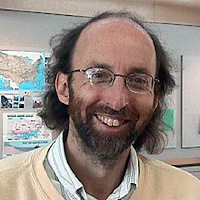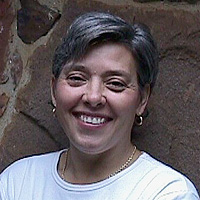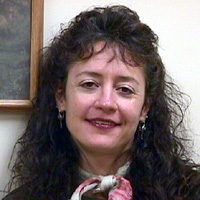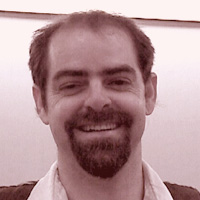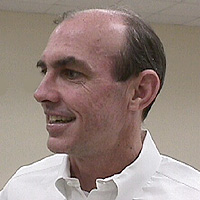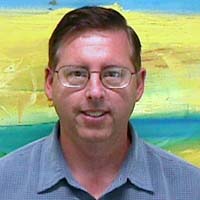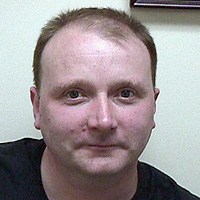|
David Wood (Vanderbilt University), December 1, 2000, EESAT 110, 3: 30 pm - 5: 00 pm Ecophenomenology can give us better access to nature than that represented by the naturalism which phenomenology was created to resist, by supplementing intentionality structurally with non- or pre-intentional characteristics of nature. Such a phenomenology concerns itself with the relationalities of worldly engagement-human and otherwise. Wood discusses four strands of relatedness: the invisibility of time, the celebration of finitude, the coordination of rhythms, and the breakdown of temporal horizons. David Wood teaches philosophy at Vanderbilt. He is the author of Philosophy at the Limit, and The Deconstruction of Time, currently being reprinted by Northwestern, and editor of numerous volumes of continental philosophy. He is completing two books: Thinking After Heidegger, and Time After Time, and planning another book on Trees and Truth. In addition to continental philosophy, he teaches environmental philosophy, and is the director of the Collegium Phenomenologicum 2001 in Italy on Earth Art Body. |
|
|
Anthony Weston (Elon College), November 28-29, 2000 Deschooling Environmental Education, November 28, EESAT 176, 2: 00 pm - 3: 30 pm Weston explores the radical critique of education by Ivan Illich, John Holt, Paulo Freire, and others and its upshot for real teaching practice for environmental education. He argues that from this perspective, for example, the goal of "ecological literacy" may be deeply problematic. The needed changes may be much broader, more structural, and less school- and curriculum-centered than we now think. Ethics on the Edge: Reimagining Environmental Ethics, November 29, EESAT 176, 2: 00 pm - 3: 30 pm Weston attempts to reimagine environmental ethics as a whole as a new kind of practice, exploratory and open-ended, rather than as an extension or application of existing ethical theories or methods. Weston is author of Toward Better Problems: New Perspectives on Abortion, Animal Rights, the Environment, and Justice (1992), Back to Earth: Tomorrow's Environmentalism(1994), A Laboratory/Liberatory Course in the Philosophy of Education: An Example of Active Learning in the Classroom (1994), A Practical Companion to Ethics (1997), A 21st Century Ethical Toolbox (2000), and A Rulebook for Arguments, 3d ed. (2000) and editor of An Invitation to Environmental Philosophy (1999). He is a Professor of Philosophy at Elon College. |
|
Sue Watts (University of Texas, El Paso), November 7, 2000, EESAT 110, 7: 30 pm Rio Grande: Living River or Dead Ditch? Watts talks about the conflicts arising from the competing jurisdictions of three states and two countries compounded by the competing interests of native American tribes, city folks and farmers, and irrigation and industry. Will there be any water left for the river itself? Or will the river become just a ditch for delivering water to everyone else? Watts holds a Ph.D. in Ecology and Evolution from Rutgers, the State University of New Jersey. She teaches in the Department of Biological Sciences at the University of Texas at El Pasoand is also a researcher in the Center for Environmental Resource Management (also at UTEP). She has been involved with projects in the stretch of the Rio Grande from Albuquerque to the confluence of the Rio Conchos. She is currently writing a biological management plan for a wetland park/wildlife refuge on the outskirts of El Paso. |
|
|
Greta Gaard (Western Washington University), November 3, 2000, November 3, 11 am - 11:50 am, Biology 204 In the last five years, literary criticism has been influenced by developments in environmental ethics, and new fields of inquiry, ecocriticism and ecofeminist literary criticism, have begun to emerge. What is ecofeminist literary criticism, and how does it differ from ecocriticism? How does this new perspective apply ecofeminist insights about democracy and identity to various readings of feminist literary fictions, environmental justice literatures, the field of ecocriticism, and the canon of nature writing itself? What topics and genres might be considered "ecofeminist literature"? This presentation explores recent developments and potential futures for studies in literary criticism, feminism, and environmental literatures. Women, Water, and Energy: An Ecofeminist Approach November 3, 2:30 pm - 4:00 pm, EESAT 110 How can an ecofeminist perspective help us understand and respond to the problems of water pollution and water purity that we face today? Using contemporary examples ranging from the Arrowhead-Weston Project, to Manitoba Hydro, Sumas Energy 2, and the Columbia River, this presentation exposes the corporate appropriations of water power from the people and from the land. Ecofeminism illuminates the way that gendered, cultural assumptions about water, power, and human relations have led to creating a water-power infrastructure that perpetuates environmental sexism, environmental racism, and environmental classism. As an alternative, an ecofeminist approach to water justice advocates strategies for bringing about an ecological democracy, an ecological economics, and a partnership culture in which water and energy flow freely. |
|
Tom Birch (University of Montana), October 16, 2000, Preservation, Principles, and the Riverbed of Practical Thought |
|
|
Anne Waters (Texas Woman's University), October 12, 2000, EESAT 110, 7: 30 pm A Prelude to an American Indian Identity Against an essentialist notion, Waters proposes a non-essentialist articulation of Indian identity based upon place (i.e., geographical local and relationship to the land). In addition, she employs a distinction developed by Vine Deloria between freedom from restrictions and freedom to be in the construction of Indian identity and ontological being. Anne Waters, a Seminole Indian, is President of the American Indian Philosophy Association and chair of the American Philosophical Association Committee on American Indians in Philosophy. She is currently an independent scholar, a certified mediator, and curricula development consultant for Native Studies, Women's Studies, and Cultural Studies in postsecondary schools. She received her Ph.D. in Philosophy from Purdue University and a J.D. from the University of New Mexico Law School. |
|
Kieran Suckling (Center for Biodiversity), May 1, 2000, EESAT 130, 4: 00 pm Apocalypse Now: On the Biological and Linguistic Diversity Crisis The loss of biological diversity contributes to the loss of linguistic diversity, and vis versa, because both are aspects of a single differential ecology. The metaphorical, totemic and historical nature of languages is impoverished by the extinction, either in life or experience, of the species which animate them. The loss of linguistic diversity eradicates perhaps the most powerful human experience of finitude, encouraging a sort of perverse Hegelian expansionism that eradicates other species and cultures. Resolution of the biodiversity crisis will require a recognition of linguistic rights, and a sensitivity to the differential, metaphorical nature language. Suckling is the founder and executive director of the Center for Biological Diversity in Tucson, AZ, and a board member of the Endangered Species Coalition, the American Lands Alliance, andSouthwest Trout. The center combines ecological research, public organizing, and aggressive litigation to protect imperiled species and ecosystems throughout western North America and the Pacific. The center has been called the most successful regional environmental group in the country by Backpacker Magazine, and the Nation's most important radical environmental group by The New Yorker. In 1996 he was awarded the Deep Ecologist of the Year Award. He is a terminal doctoral candidate in philosophy at SUNY-Stony Brook. |
|
 |
Robert Hood (Department of Philosophy, Middle Tennessee State University), April 28, 2000, EESAT 125, 3: 00 pm Priorities in Ecosystem Health: A Public Goods Approach Hood defends a dispute resolution procedure of "environmental triage," in which management priorities are based on the creation of ecosystem goods as an alternative to stakeholder negotiations. He suggests how to extend the notion of triage, first suggested by conservation biologists, to ecosystems management. When choosing among alternate management plans, priority should be given to protecting ecosystem goods and services such as biodiversity, evolutionary potential, complexity, resilience, and productivity. In contrast to stakeholder negotiations, where the emphasis is on distributing ecosystem goods, priority should be given to management plans that maximize the capacity for production of ecosystem goods and services, such as those that create habitat. Hood teaches environmental ethics and other courses in moral and political philosophy at Middle Tennessee State University. In the summer of 2001 he will be teaching environmental ethics and doing research on ecosystem health in Brazil. His work has appeared in the journals Environmental Ethics and Ecosystem Health, as well as several edited volumes. Currently he is finishing a manuscript on ecosystem triage, various parts of which have been presented at Tel Aviv University and at Oxford University. He is one of the first two graduates of the UNT Master of Arts in Philosophy with a Concentration in Environmental Ethics. |
|
Tom Nenon (Department of Philosophy, University of Memphis), April 22, 2000, EESAT 125, 2: 30 pm The Issue for Thinking and Its Limits Nenon tries to make sense of the claim that for Heidegger the single issue for thinking is the queston of the meaning of Being and he will try to describe some of the major developments of his thinking as attempts to respond to this question. He will then turn to some of the traditional objections about the limitations that his way of responding to this question seem to present for human agency. He will also discuss another recent objection to Heidegger's approach, namely that he has failed to take sufficient account of the body, both in his analyses of Dasein in Being and Time and in his later descriptions of mortals and mortality. He addresses some of the reasons why Heidegger failed to do so and will argue that precisely, if we wish to do justice to the phenomenon of embodiment as an essential element of human existence, we would do well to learn from him how difficult that can be in the modern age. Tom Nenon completed his graduate work in philosophy and literature with a dissertation on Kant's theory of truth and objectivity under Werner Marx at the Philosophisches Seminar I in Freiburg. He then worked as an editor at the Husserl-Archives and instructor at the University of Freiburg before coming to University of Memphis in 1985. His teaching and research interests include Husserl, Heidegger, Kant and German Idealism, hermeneutics, and the philosophy of the social sciences. His publications include Objectivitaet und endliche Erkenntnis, a study of Kant's theory of truth; critical editions of Husserl's works in Volumes XXV and XXVII of the Husserliana; articles on Kant, Dilthey, Husserl, Gadamer, Weber, and Heidegger and issues in literary theory and the ethical implications of genetic engineering; and translations of books on Schelling and Heidegger into English and a book on analytic philosophy into German. He has served as review editor for Husserl Studies, as a member of the Executive Committee of the Society for Phenomenology and Existential Philosophy, as Director of the Center for the Humanities, and now as Assistant Vice Provost for Academic Affairs at the University of Memphis. His current research interests include Husserl's theories of personhood and subjectivity and Kant's and Hegel's practical philosophy. |
|
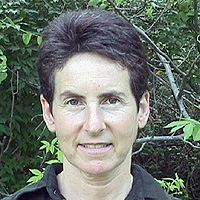 |
Marti Kheel (Graduate Theological Union), April 18, 2000, EESAT 130, 7: 30 pm Non-Human Animals in Nature Ethics: Reflections on Past and Future Directions In this presentation Kheel traces the historical roots of attitudes toward non-human animals in nature ethics, examining the central role of sport hunting and the concept of manliness in the early conservation movement. She critiques the tendency to subordinate individual beings to larger, abstract constructs like "manliness," "species" the "ecosystem" or the "land." She argues for an ecofeminist holist philosophy that emphasizes the importance of empathy for individual beings, the act of attention, appropriate care, vegetarian practice, and idea of play. |
|
Donald Brown (Pennsylvania Department of Environmental Protection), April 9, 2000 |
|
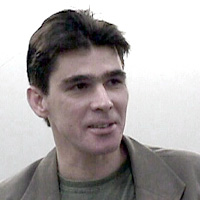 |
John van Buren (Department of Philosophy, Fordham University), April 9, 2000 |
|
Andrew Light (Environmental Studies, SUNY, Binghamton, New York University), April 8, 2000 |
|
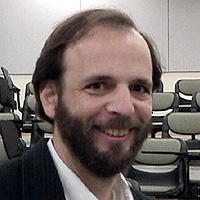 |
Dan Sarewitz (Columbia University), April 8, 2000 |
|
Christine Turner (U.S. Geological Survey), April 8, 2000 |
|
 |
Cathleen May (Science and Outreach, Geological Society of America), April 7, 2000 |
|
Robert Frodeman (U.S. Geological Survey, University of Colorado), April 7, 2000 |
|
 |
Rachelle Hollander (Societal Dimensions of Engineering, Science, and Technology, National Science Foundation) April 6 , 2000 Social Genomics and the Politics of Food Choice April 8, 2000 Funding Opportunities in Philosophy and the Environmental Sciences |
|
Philosophy and the Earth Sciences 7 to 9 April, 2000 |
Organized by Robert Frodeman and Eugene C. Hargrove
A conference on Philosophy and the Earth Sciences will be held at the University of North Texas from 7 to 9 April 2000. It will begin at 1:30 p.m. Friday and conclude at 12:00 noon Sunday. It is sponsored by the Center for Environmental Philosophy and cosponsored by INCLUDE, U.S. Geological Survey. It will be held in the Environment Education, Science, and Technology Building, Room 130.
Speakers include Robert Frodeman of the University of Colorado, Cathleen May of the Geological Society of America, Christine Turner of INCLUDE, U.S. Geological Survey, Dan Sarewitzof the Columbia University, Irene Klaver of the University of North Texas, Andrew Light of the State University of New York, Binghamton and New York University, Rachelle Hollander of the National Science Foundation, Steve Bohlen of the U.S. Geological Survey, Sam Atkinson of the University of North Texas, and Donald Brown of the Pennsylvania Department of Environmental Resources.
|
Mick Smith (Department of Social and Health Sciences, University of Abertay Dundee), March 29, 2000, EESAT 130, 7: 30 pm Environmental Anamnesis: Walter Benjamin and the Ethics of Extinction Smith is a Lecturer in the Division of Sociology, Department of Social and Health Sciences at the University of Abertay Dundee in Dundee, Scotland. He is the author of An Ethics of Place: Radical Ecology, Postmodernity and Social Theory(SUNY Press). He holds a Ph.D. and an M.A. in philosophy and an M.Phil. and a B.S. in ecology.
|
|
 |
Clifford E. Knapp (Curriculum and Instruction Department, Northern Illinois University), March 22, 2000, EESAT 125, 4: 00 pm Using Outdoor Experiences and Reflection to Learn about Nature and to Form an Environmental Ethic Knapp is a professor in the Curriculum and Instruction Department at North Illinois University. For the past 37 years, he has been an elementary, junior high, and high school teacher as well as a teacher educator. He is the author of In Accord with Nature. |
|
Ithamar Gruenwald (Department of Jewish Philosophy, University of Tel Aviv), February 4, 2000, EESAT 110, 3: 00 pm Mysticism and the Jewish Tradition Professor Gruenwald, the author of From Apocalypticism to Gnosticism and Apocalytic and Merkavah Mysticism, is one of the foremost authorities on Jewish mysticism and philosophical thought. |
|



